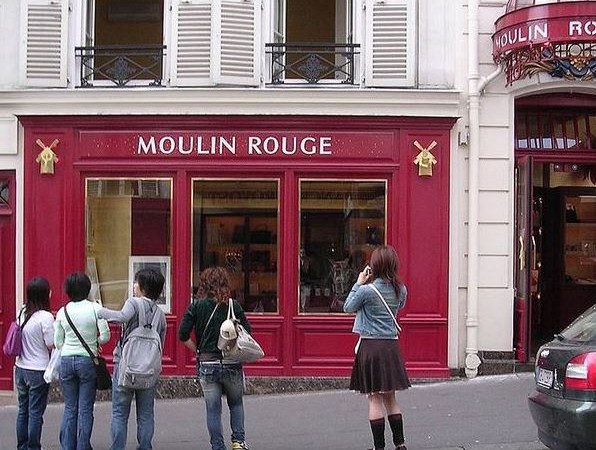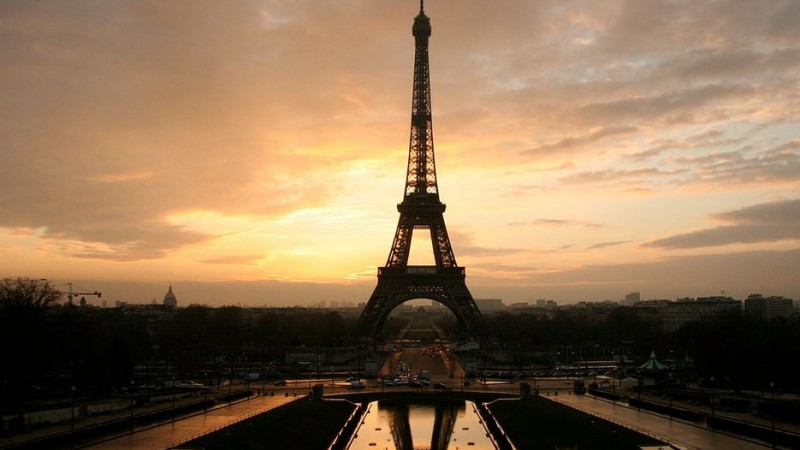
Japanese tourists in Paris by Lantus. CC 2.0
Paris, commonly referred to as the “City of Lights” worldwide, receives on average 20 million visitors a year, making it one of the world's top tourist destinations. The city also carries a significant aura with tourists who perceive Paris as a land of culture and romance with all the expectations that such label entails. Once the novelty of a mega-city wears out, however, reality usually settles in. And reality often bites. After the great monuments and cultural landmarks, there are the less glamorous aspects of city life: dense traffic, pollution, petty crimes, and language barriers. The come-down from the initial high has a name: the “Paris Syndrome”.
The Paris Syndrome was defined by a Japanese psychiatrist working in France, Professor Hiroaki Ota. He describes it as follows:
Japanese travelers often held idealistic views of Paris, mostly concerning culturally specific expectations of service industry customs, societal manners, and urban hygiene. When Paris did not live up to these expectations, a small group of travelers would descend into depression. Often, depression turned into psychosis, and lead to medical treatment.
The cultural shock has been so regular that the Japanese embassy in Japan created a 24-hour hotline for those suffering from the syndrome.John Menick even investigated the concept in a video now available on YouTube:
Eriko Thibierge-Nasu, a Japanese psychoanalyst, explains to a French reporter the potential extent of the culture shock:
Il y a pas mal de grèves, les gens peuvent être un peu agressifs verbalement, on peut se faire voler son porte-feuille dans le métro, le taxi peut arriver avec un quart d'heure de retard. C'est quelque chose d'inconcevable au Japon
There are a lot of worker strikes, people can become verbally abusive, your wallet could get stolen in the streets, and a taxi can arrive 15 minutes later than planned. All of this is difficult to comprehend in Japan.
Katada Tamami, a Japanese scientist, wrote in the Journal of Nissei Hospital about the extreme case of a Japanese professor who moved to Paris and underwent several psychological hardships:
It was a case of manic-depressive disorder who presented his symptoms, insomnia, fluctuation of mood, aggression, irritation and rise in sex drive. Separated from his family, living alone in Paris, he has lost his identity when he worked as professor and fulfilled his duties as father and husband at home is Japan. Moreover, his fantasy and idealization of Paris, characteristic of Paris syndrome, played a great part in his abnormal behaviors searching for his lost youth and love affair.
While the cultural shock for Japanese tourists is the most observed occurrence of the syndrome (a little less than 1 million Japanese citizens come to visit Paris each year and an average of 12 Japanese travelers a year suffer from it), other visitors have also experienced depression after visiting the city. In a video, American traveler Mark Wolters lists a few items that struck him while visiting Paris. Some were positive, others not so much, such as the following notes:
-The Amount of People Who Smoke
-Dog Poop… Lots of Dog Poop…
-How Restaurants Close in the afternoon
-The Amount of Beggars You See (and pickpockets)
Professor Mark Griffiths is a Psychologist and Professor at the Nottingham Trent University. He did a bit of research on the Paris Syndrome and reviewed the scientific literature on the subject. Griffiths highlights the fact that there are two main types of the syndrome:
-
Type 1 [Classic]: These individuals typically have a problematic psychiatric history and may travel to Paris for idiosyncratic “strange” or delusional reasons. However, the onset of the symptoms is immediate upon arrival in Paris (and may even begin in the airport).
Type 2 [Delayed Expression]: These individuals do not usually have a personal and/or familial psychiatric history. The reasons for visiting Paris are typically for ‘normal’ travelling reasons but the onset of the symptoms is much later than the ‘classic’ type (i.e., three months or longer after arriving in Paris).
Christophe Soullez, a Paris resident and criminologist, explains that Asian tourists are often specifically targeted by local thieves, which adds to the Paris Syndrome. However, specific measures are now in place to protect them:
On sait que les touristes sont particulièrement visés par les voleurs à la tire ou à l’arraché. Ce phénomène, qui touche surtout Paris, est tellement problématique que nous avons dû demander aux groupes de police judiciaire de se concentrer l’été principalement sur la prévention. Au Japon les vols à la tire n’existent quasiment pas. Les touristes ne vont donc pas se méfier de délinquants organisés.
We know that pickpockets and purse snatchers particularly target tourists. This phenomenon, which affects mostly Paris, is so problematic that the police had to ask for the help of the judicial police department to focus more on crime prevention. In Japan, pick-pocketing is almost non-existent. Tourists will therefore not be as aware of organized criminals around them.
Fear not for your next Paris visit though, it is far from being all dread. Most Paris residents are aware that adapting to the Parisian lifestyle can be a challenge. But once you get passed the initial hurdles of adapting, which exist in any big city where locals speak a foreign language, you can start enjoying the perks. Here are some lesser known tips to enjoy a quieter Paris, courtesy of Global Voices‘ own French editor, Claire:
Cet été, sans hésitation, nous leur conseillons le quartier du Jardin des plantes. Le plus ancien des grands parcs de Paris, qui fut d'abord le jardin des plantes médicinales du roi, doit beaucoup à la Révolution française qui en fit un temple de la science mais il a maintenant un charme ‘bourgeois’ et ‘province. Dans une tête parisienne, Jardin des Plantes rime presque automatiquement avec ‘thé à la mosquée’, juste en face. Dans cette très jolie mosquée de Paris inaugurée en 1926, les moineaux très familiers se serviraient presque dans votre assiette quand vous prenez un thé
This summer, we suggest haging out around the “Jardin des Plantes”. It is the oldest of the major parks in Paris and it was initially the king garden for medicinal plants. Following the French Revolution, the authorities decided to transform the park into a science museum, but it has kept its “bourgeois” and provincial touch. For a Parisian resident, the Jardin des Plantes is almost automatically associated with getting tea at the mosque, located right at the entrance. In this beautiful mosque, opened in 1926, the friendly sparrows will almost eat off on your plate, as you enjoy your tea.
In the end, maybe this syndrome is not specific to travelers to Paris, but just a common case of homesickness. Still, surely more can be done to ensure a better experience for visitors. Philippe Adam, a Parisian writer who penned many articles about the relationship between France and Japan, perhaps sums it up best:
On rend assez mal aux Japonais l'affection qu'ils portent à la France
We are not doing a good job of reciprocating the affection that Japanese visitors have for France.








7 comments
Pickpockets are not the only ones ruining our visitors’ vacations! Here a the 5 most common scams used against tourists in Paris, in 2D animations:
https://www.youtube.com/watch?v=v7rQlLYpA4g&list=PLZXN11icfdC8Rs3dCzJn4URzEcZGzAOq-
Wow, a lot of writing for something that affects 12 people out of 1 million travelers, a rate that probably won’t even come close to being considered statistically significantly above those who don’t visit Paris. This probably has nothing to do with France whatsoever. I suspect the rate of depression/malaise/general annoyance among Japanese, and among people generally, is much higher.
I guess they have a lot of extra writers in Japan with nothing to report. I would bet 12 people out of 1,000,000 die on vacation in Paris!
“But once you get passed” Dude, your credibility goes out the window when you write “passed” instead of past! It makes you seem illiterate.
Hello Bob,
Dude, good to read you ! Thank you for noticing the error. I hope you are well and that the summer is going alright. Cheers, Lova
As in a lot of big cities, visiting Paris can be tricky if you’re not aware about the Do and the Don’t…As a Parisian myself I’m sometimes shocked when I see tourists roughly welcome, specially in tourisitic places. Still, if you have the “instruction for uses”, Paris can be very friendly. Here are 10 mistakes to avoid in Paris:http://etvoila.info/10-mistakes-to-avoid-to-have-a-nice-stay-in-paris/